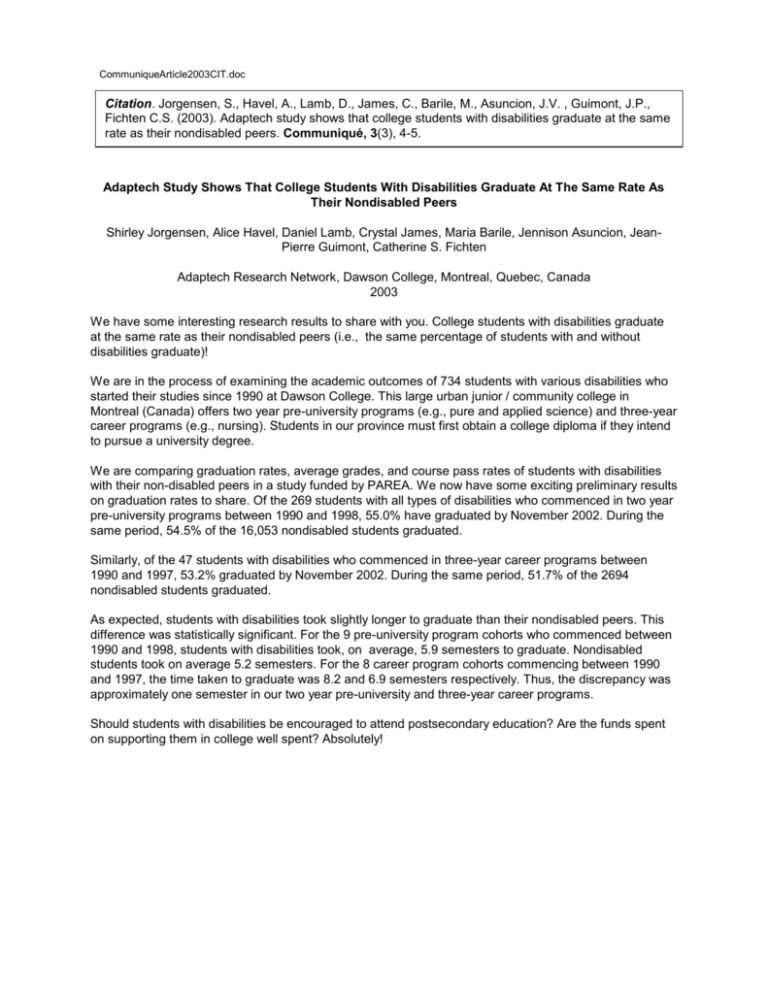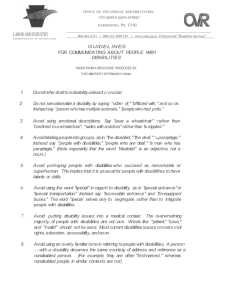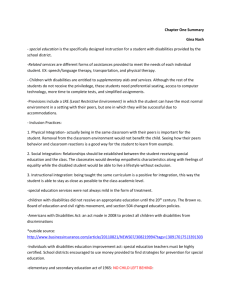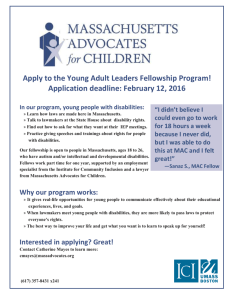Adaptech Study Shows That College Students With Disabilities
advertisement

CommuniqueArticle2003CIT.doc Citation. Jorgensen, S., Havel, A., Lamb, D., James, C., Barile, M., Asuncion, J.V. , Guimont, J.P., Fichten C.S. (2003). Adaptech study shows that college students with disabilities graduate at the same rate as their nondisabled peers. Communiqué, 3(3), 4-5. Adaptech Study Shows That College Students With Disabilities Graduate At The Same Rate As Their Nondisabled Peers Shirley Jorgensen, Alice Havel, Daniel Lamb, Crystal James, Maria Barile, Jennison Asuncion, JeanPierre Guimont, Catherine S. Fichten Adaptech Research Network, Dawson College, Montreal, Quebec, Canada 2003 We have some interesting research results to share with you. College students with disabilities graduate at the same rate as their nondisabled peers (i.e., the same percentage of students with and without disabilities graduate)! We are in the process of examining the academic outcomes of 734 students with various disabilities who started their studies since 1990 at Dawson College. This large urban junior / community college in Montreal (Canada) offers two year pre-university programs (e.g., pure and applied science) and three-year career programs (e.g., nursing). Students in our province must first obtain a college diploma if they intend to pursue a university degree. We are comparing graduation rates, average grades, and course pass rates of students with disabilities with their non-disabled peers in a study funded by PAREA. We now have some exciting preliminary results on graduation rates to share. Of the 269 students with all types of disabilities who commenced in two year pre-university programs between 1990 and 1998, 55.0% have graduated by November 2002. During the same period, 54.5% of the 16,053 nondisabled students graduated. Similarly, of the 47 students with disabilities who commenced in three-year career programs between 1990 and 1997, 53.2% graduated by November 2002. During the same period, 51.7% of the 2694 nondisabled students graduated. As expected, students with disabilities took slightly longer to graduate than their nondisabled peers. This difference was statistically significant. For the 9 pre-university program cohorts who commenced between 1990 and 1998, students with disabilities took, on average, 5.9 semesters to graduate. Nondisabled students took on average 5.2 semesters. For the 8 career program cohorts commencing between 1990 and 1997, the time taken to graduate was 8.2 and 6.9 semesters respectively. Thus, the discrepancy was approximately one semester in our two year pre-university and three-year career programs. Should students with disabilities be encouraged to attend postsecondary education? Are the funds spent on supporting them in college well spent? Absolutely!








